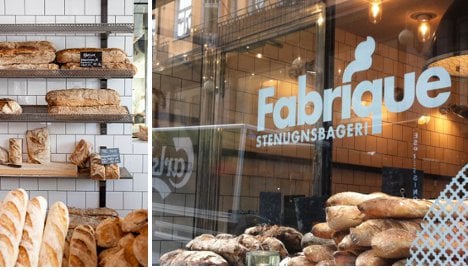”We have always loved London, but we weren’t as enamoured with their bread,” co-founder of Fabrique, Charlotta Zetterström, tells The Local.
Zetterström and husband David, who has a background as a breadmaker, started up their first shop in Stockholm in 2008. After working in a bakery part-time while studying economics at university, they both knew what they wanted to do.
The couple aimed to make it as easy as possible for people to get hold of good, wholesome bread, every day, the whole year round.
After seeing a small shop and bakery up for sale, they decided to take a chance and go for it.
“Right when we started there were people lining up to buy our bread. There was a definite demand,” says Charlotta Zetterström.
“I think we rode a little on the ‘sourdough wave’. At the time, we didn’t see it like that, but when we look back we can see how we had help from the debate about natural ingredients which had just hit the Swedish media.”
The bread produced at Fabrique is made with clean and natural ingredients and baked in a traditional way, by hand, around the clock, in a stone oven.
After opening up their first bakery in Stockholm four years ago, they have since grown to include six more outlets in the Swedish capital, as well as a bakery on the Baltic island of Gotland, Rute Stenugnsbageri, which is open in the summer.
And now, despite having one toddler and a five-month-old baby to look after, the couple are thinking big and planning for the opening in London in November.
“We found a really cool location for the bakery in east London and we’re hoping to open in November,” Zetterström says.
The shop in London will be very much like the Swedish stores, she adds.
“We are going to bring Sweden over to Britain – so we will be selling Swedish cinnamon buns as well. We’re pretty sure that they will like it.”
However, the couple will not be bringing Swedish produce. Instead they’ll be using locally produced ingredients – in itself a challenge as it means having to adapt recipes accordingly.
“We will have to work on the recipes to get the balance right. But this is what is unique with our concept. We won’t be bringing frozen bake-off bread but will be baking it from scratch on site,” Zetterström says.
The couple are convinced that the London store will be as much of a success as the Swedish shops. According to them, the British are becoming more aware of what they eat, although the organic food trend with locally produced ingredients hasn’t quite hit as hard there yet as it has in Sweden.
“But we think Londoners are ready for our bread,” Zetterström tells The Local.
The new store will be opening on November 8th in Shoreditch, in east London.
Rebecca Martin



 Please whitelist us to continue reading.
Please whitelist us to continue reading.
Member comments